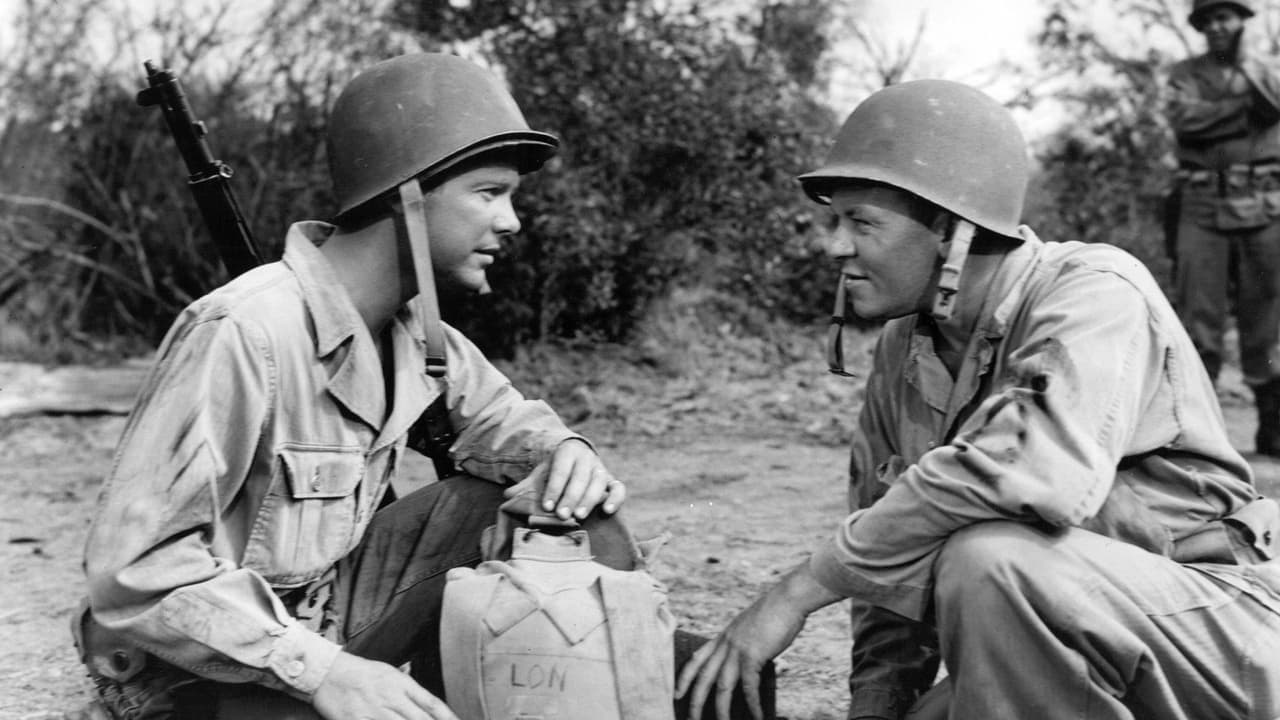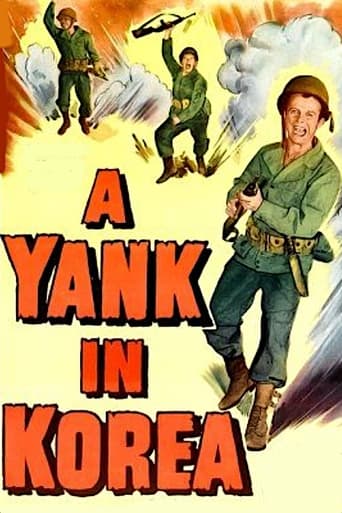

Director: LEW LANDERS. Screenplay: William Sackheim. Story: Leo Lieberman. Photography: William Whitley. Film editor: Edwin Bryant. Art director: Paul Palmentola. Set decorator: Sidney Clifford. Music director: Ross DiMaggio. Unit manager: Herbert B. Leonard. Assistant director: Leonard Katzman. Sound recording: Josh Westmoreland. Producer: Sam Katzman. Copyright 1 February 1951 by Columbia Pictures Corp. New York opening at the Globe: 1 April 1951. U.S. release: February 1951. U.K. release: 14 April 1951. Never released in Australia. 73 minutes.U.K. release title: Letter from Korea.COMMENT: Although dedicated to the late Pfc. John J. McCormick, whose letter from Korea allegedly inspired this movie, A Yank in Korea does not actually deal with John McCormick at all. Instead, the oldest war story in the hills gets yet another outing here. Yes, it's that tried-and-true chestnut about the gangling recruit/tough sergeant/new lieutenant, hated by everyone in the unit, who redeems himself by some act of heroism right at the end. Lumbered with a script, a cast and a budget that would have defeated even a John Huston, Lew Landers can do nothing with this material. I suspect he didn't even try.
... View MoreIt's just a rare war movie I am going to talk about. A Columbia Pictures product, with Sam Katzman as producer and Lew Landers as director. The "Dream Team" for this kind of film. An ordinary war movie about war in Korea, of course. The ordinary story of the ordinary American boy who wants to enlist in the Army to fight the Commies. He has a fiancée at home and goes to fight the enemy. He later meets another trooper whom he gets friend with....The following is predictable, as you can guess. Sometimes boring, the battle sequences are just here to keep you awake, and mostly with stock shots. The last two minutes are perhaps a little poignant, and that's here you understand that this feature was no more no less than an ordinary propaganda film, to convince the American people that it was necessary to send troops in Korea. To preserve freedom.The ordinary message we may expect in an ordinary war movie.
... View More